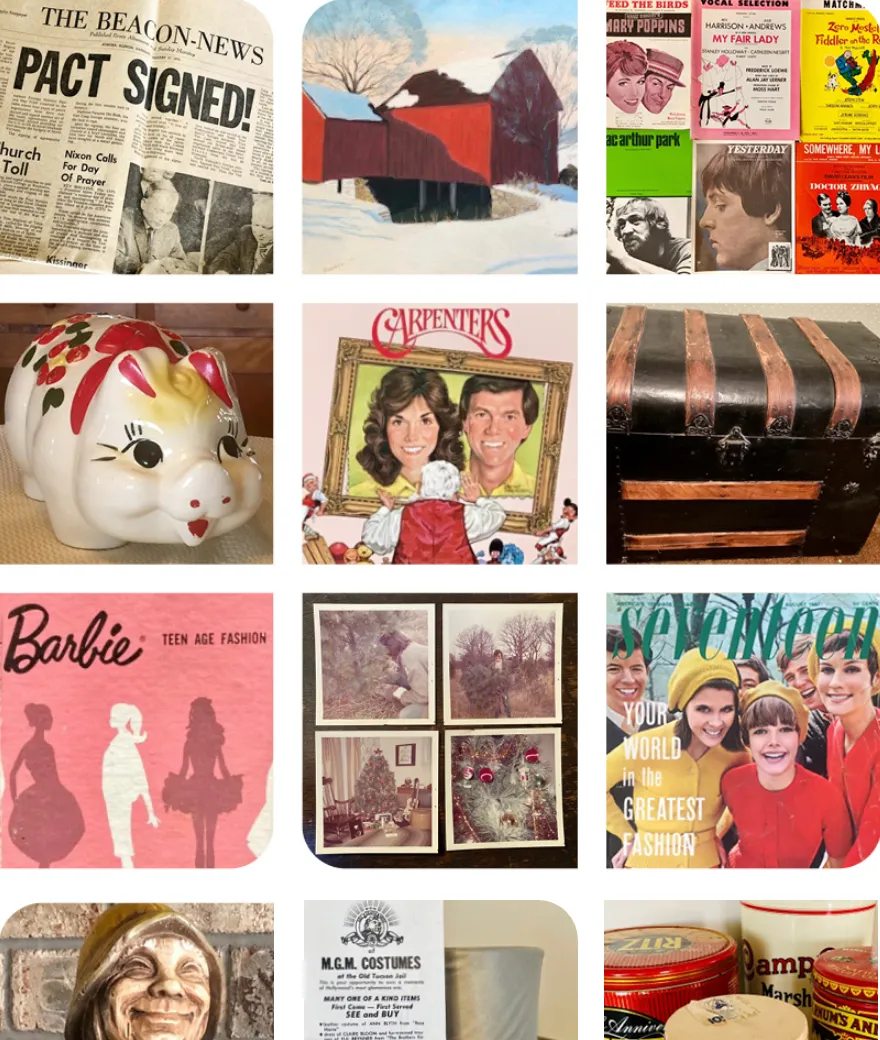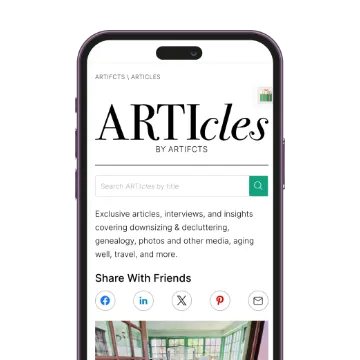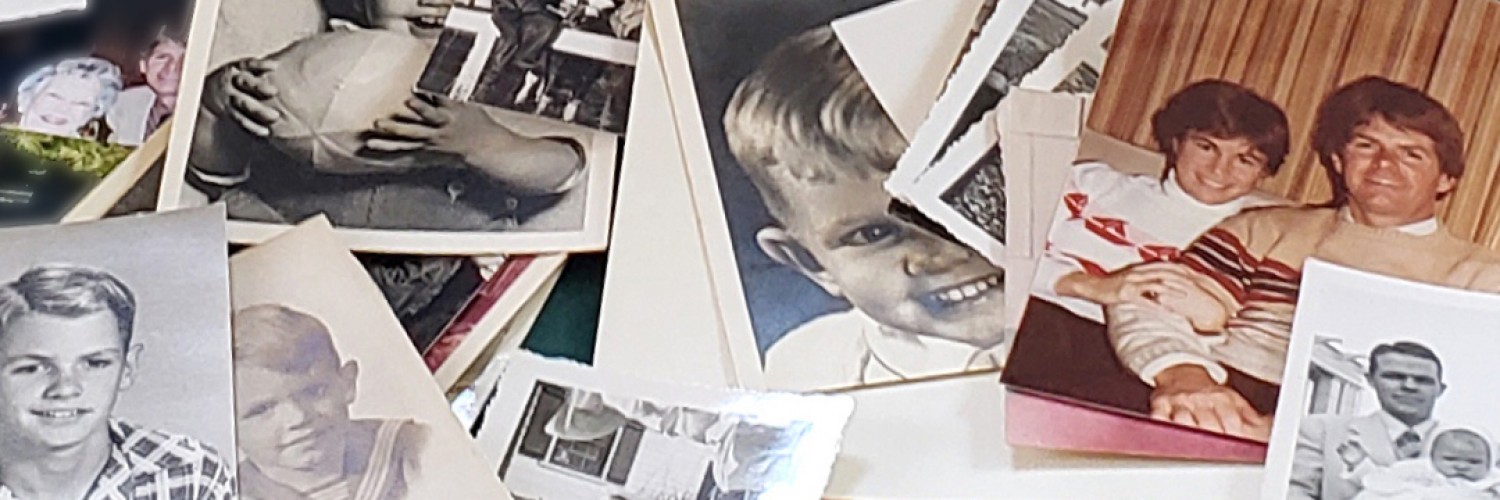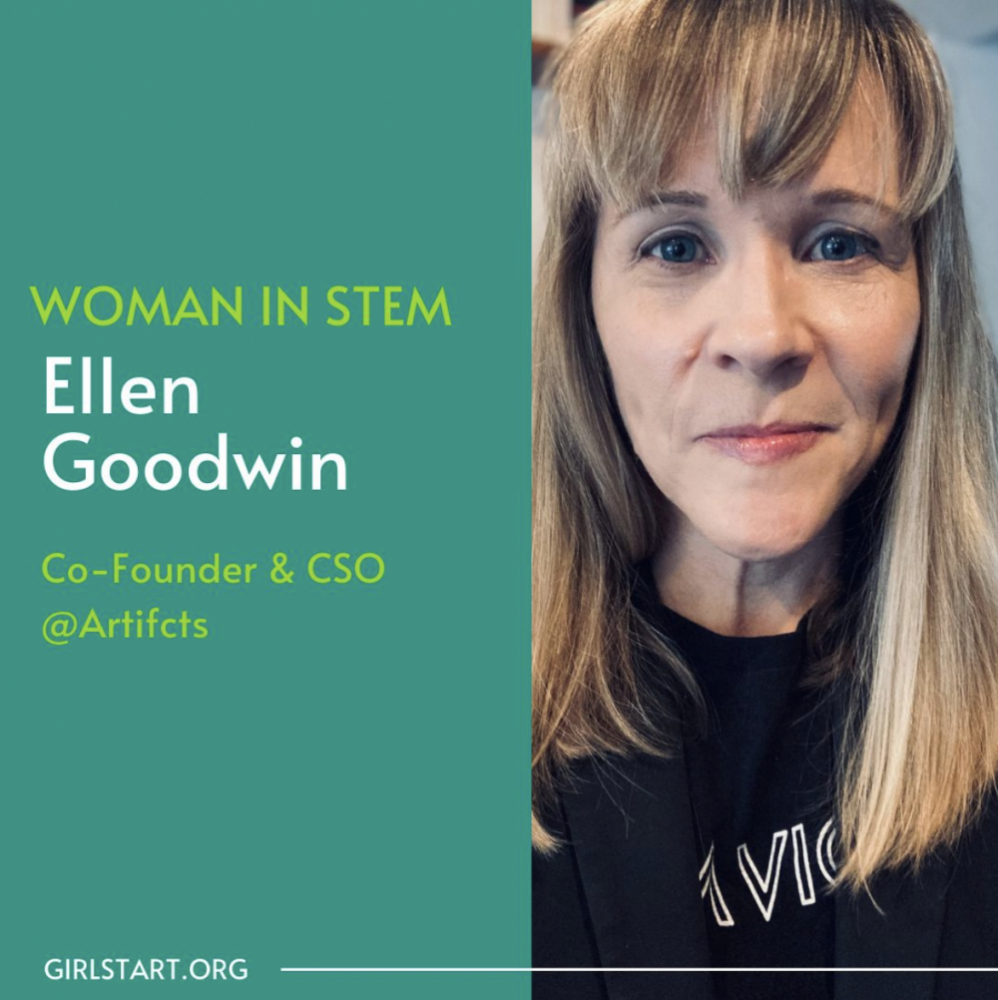The joys of Artifcts have been endless for Heather and me, the founders. We’ve experienced with our early subscribers the emotional highs and lows of bringing back heritage and forward memories. Whether that’s unearthing long forgotten family heirlooms, discovering the joy of connecting through shared experiences incapsulated in objects, or simply finding a new, safe place to preserve bits of ourselves, we’ve experienced a lot with our Arti Community.
One of the more remarkable and surprising aspects of the Artifcting journey has been how often people have come to us with ‘stuff’ that really should be in a museum or carefully preserved to ensure it can even last another year much less generation! Browse Artifcts and you’ll see what I mean – letters from WWII, old maps, stacks of photos, bibles hand carried from Europe in the 1800s, cherished cookbooks, original sketches, and more.
So, imagine my surprise when one Sunday morning while reading my local northwest Austin community paper I saw a short blurb about a new company that specializes in archival preservation services. Monocurate is just around the corner from my house, has a web design aesthetic that immediately drew me in, and drum roll please… is another female-led business!
I reached out to founder Brooke Lake to learn more. While her sweet spot is paper – think photos, books, and documents that require stitching, dry cleaning, and other restoration and preservation – her skills also include preserving textiles (think wedding gowns), digitization and digital catalogs, and more. I can also disclose the thoughtful, patient course correction she offered us at Artifcts to ensure we never encourage people to write on photographs or attach QR codes to objects in ways that could ultimately be damaging (now in our FAQs, "Artifcting Process"). Thanks, Brooke!
Brooke and I have since met several times, including a tour of her workshop, and I wanted to share with you some of our musings and discoveries about the overlapping world views of Artifcts and Monocurate.
Ellen Goodwin: Well, we might as well start at the beginning – we both launched our businesses during the late summer of 2021 with no end in sight for the pandemic. What led you to make that leap, at that time?
Brooke Lake: When quarantine happened, I, like many others, found myself faced with looming uncertainty. Widespread closures of public institutions left me with some extra time on my hands, and I used this opportunity to reflect on my experiences in public archives. I couldn’t shake the feeling that however much I enjoyed my work, it was becoming increasingly disconnected from our day-to-day lives. I created Monocurate with the hope of filling the need for archival and preservation services on a personal level.
Goodwin: You told me you have a passion for papers. What’s your background and how did it lead you to papers?
Lake: I have always been interested in the written record. I have a BA in history and and a masters in library science (MLIS). Through both, I have spent countless hours reading through source material. However, with my history degree I was the researcher; with my MLIS I was able to work as a formal Archivist making me the custodian of the records. Later in my career, I was trained by a highly respected Conservator here in Austin. My time spent with Carrabba Conservation gave me another perspective on the physicality of paper. Through all three—a researcher, a custodian, and a caretaker—I was provided with a multi-faceted perspective of the use of the records (i.e., paper). As a result, I was able to respect and appreciate use of paper and the importance and connection papers have to our day to day lives.
Goodwin: Respecting your clients’ privacy, of course, can you share with us the outlines of a favorite project?
Lake: One of our favorite collections in the past year was a client’s late mother’s poetry collection. It consisted of a handful of partially organized folders but the paper was folded, crinkled, and in desperate need of TLC. We flattened, cleaned, and encapsulated fragile pieces so that they could be safely read and handled. We created a simple inventory and reboxed the collection in an archival box with a brass nameplate with the client's name on it. The cherry on top was finding an old email that the client had written to her mother while she was away at school. Our client had no idea her mother had read that email let alone printed it out and saved it. We loved that we were able to rediscover that part of her history and preserve it along with the poetry collection, just as her mother had originally.
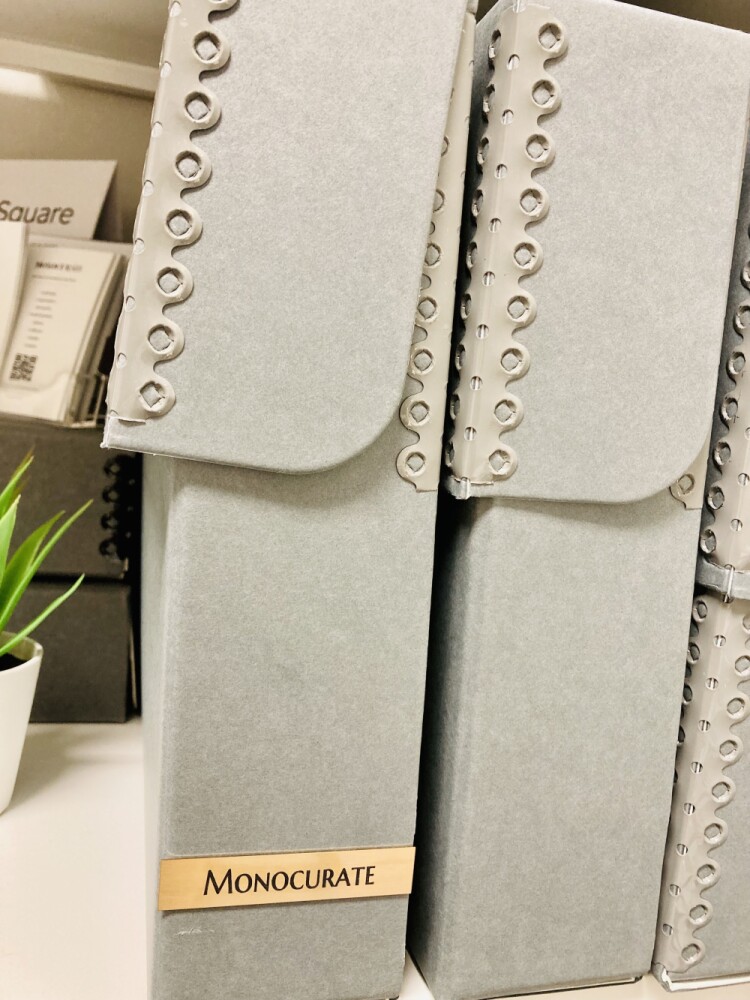
Goodwin: What about the most challenging? What makes one object more challenging than another, or is it really just more time consuming?
Lake: Everything we take on can be challenging and time-consuming. We have to work slowly to respect the material regardless of what it is. Each object, in some way, tells us how it needs to be cared for and preserved. For example, with paper, it can rip so we must be meticulous when handling and caring for it. This is especially true of high-acid wood pulp paper. It was first developed in the early 1800s and used in some newsprint, kraft and manila papers, as well stationary, and is fragile as well as prone to darkening and staining with age.
For digitization, when we scan, say photos from the 1920s, we have to ensure the color is calibrated perfectly to get the most accurate representation of the photograph which can be time consuming and challenging. For objects, there is no one-size-fits-all approach so everything we do is individualized to meet the needs of the material. This can be especially true for objects that people want to handle or display. Since we offer an array of services everything we do is met with some sort of challenge. The silver lining of course is that we are always learning and developing our skill sets so I appreciate the fact that our work keeps us on our toes.
Goodwin: What do you wish people knew or better understood about archival preservation?
Lake: It’s not as simple as keeping everything “safe” in a bin in your closet. Lots of factors come into play with preservation. The environment (light, humidity, air quality) to the type of enclosure you are storing items can not be understated. Poor handling takes it’s toll as does poor-quality storage, which can accelerate the deterioration of your collection.
It is important to remember that very object is unique and should be treated as such when it comes to preservation, as mentioned above: it’s rarely a one-size-fits-all approach. A common example is scrapbooks. Sure they store all your favorite photos and nostalgic items but ultimately they are incredibly damaging and horrible from a preservation standpoint.
Goodwin: I could imagine that like Artifcting, with archival preservation services people may not know where to start. They have too much to prioritize. What would your advice be to these people?
Lake: Start organizing your collections at home first. I think this is an area where Artifcts truly shines. Just being aware of what you have and where it is located is a great first step. From there, evaluate your collection and decide what needs to be prioritized. For example, if your important family papers are in a plastic bin on the ground, move them into an acid-free cardboard box to a mid-tier shelf. If you have a large collection of glassware, rearrange them so the boxes are not overcrowded and include lots of padding. For metal objects ensure the environment is dry and ensure each piece is stored individually. Move slowly through your list of Artifcts and focus on one area at a time (e.g., first family documents, then glass, then metal) that way you are in the headspace and can streamline your at-home preservation endeavors.
Goodwin: Artifcts are literally unique, transferable digital assets. Artifcts will outlive us as individuals, they might even outlast the objects they capture. And yet, with your services, we have hope that objects can be carried forward from generation to generation, family history and world history captured and preserved. Tell us about a project that really resonated with you and the why behind it.
Lake: Currently we are working to digitize and preserve a large collection of hi8 home-movies. This family came to me to digitize and preserve the original media that they recorded over a 20 year time period. These tapes include a complete timeline of their marriage and children’s childhood through birth to graduation. It’s an incredible amount of footage. I found it interesting that each family member had a different take on the “why.” For example, the father simply didn’t want to lose the footage. The mother was more interested in editing clips of the newly digitized media to share with friends and family, and their two now grown children didn’t recall all the moments that were filmed and were more interested in watching the footage to see what was there.
For me, I was just happy to bring these forgotten memories to light while simultaneously stabilizing and preserving the original media should a better analog-to-digital conversion technology come along in the future.
Goodwin: In your experience, what’s the primary motivation for someone who brings you a precious object for archiving?
Lake: Many collections are becoming increasingly fragile and are in danger of being lost forever. Our clients want to ensure that their collections remain in stable condition to be passed down for generations to come. This is true regardless of whether it is a family collection or work for institutions. While deterioration cannot be stopped, it can be slowed down, and that’s our primary motivator for helping people. In addition, we also provide organization, inventories, digitization, and reference and research services—all of which provide our clients with an accessible, holistic approach to their collections regardless of what they may consist of.
Goodwin: Okay, last question! I asked Jennifer Singleterry of Sort & Order about this and want to ask you, too. You know all about Artifcts. How do you think Artifcts could help you in your work with your clients?
Lake: One of the biggest aspects of family collections is the lack of collaboration. Usually, one person is the gatekeeper so to speak. As a result, external stories tend to be lost or forgotten simply because the other individuals don’t have access to the item. Artifcts rectifies this problem by providing the space to crowdsource and share stories. The way Artifcts allows several individuals, no matter their distance, to provide context to objects is just incredible.
< End of interview >
We know that when it comes to our personal lives and histories “someday” often turns into never or maybe simply too late. We hope you will think about those pieces of you that should be Artifcted and archived to pass to friends and family and future generations before it’s too late. Take it one object at a time. If you get stuck, see if some of our partners and membership organizations can help you!
You can reach out to Brooke at Monocurate for a free consultation. She has beautiful project examples and easy to follow steps on her website as well. And, if you’re in Austin, we encourage you to attend a Monocurate workshop!
© 2022 Artifcts, Inc. All Rights Reserved.
